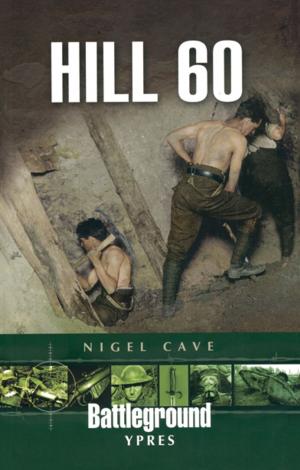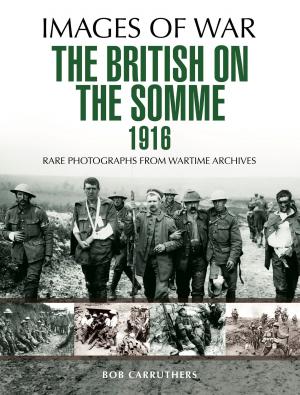Haking: A Dutiful Soldier
Lt Gen Sir Richard Haking, XI Corps Commander 1915-18, A Study in Corps Command
Nonfiction, History, Military, World War I, Modern, Biography & Memoir, Historical| Author: | Michael Senior | ISBN: | 9781781598122 |
| Publisher: | Pen and Sword | Publication: | April 19, 2012 |
| Imprint: | Pen and Sword | Language: | English |
| Author: | Michael Senior |
| ISBN: | 9781781598122 |
| Publisher: | Pen and Sword |
| Publication: | April 19, 2012 |
| Imprint: | Pen and Sword |
| Language: | English |
Sir Richard Haking commanded the British XI Corps from 1915 to 1918 mainly in France, but also in Italy (December 1917-March 1918). This first study of Haking takes the form of a review and analysis of his career as a Corps Commander, placing the activities of XI Corps in the context of events on the Western and Italian Fronts. It has three aims. First, it is intended to make a balanced assessment of Haking as a Corps Commander in the light of an established popular reputation, which places him firmly in the ‘donkey’ category of First World War generals. The second aim is to examine how Haking carried out his role as a Corps Commander, and the third aim is to relate the experiences of Haking and XI Corps to a number of important topics connected with the conduct of the war: trench warfare on the Western Front, with particular reference to the much-criticized attack at Fromelles in July 1916; the British involvement in Italy; the relationship with the Portuguese Expeditionary Force in France; and the British victories in 1918. Reference is made to several key operating issues such as command and control on the Western Front; the ‘learning curve’ in the BEF; the doctrine of the offensive; and the British policy on defense in depth. Each is discussed taking account of Haking’s experiences as XI Corps Commander. The study concludes, contrary to the general view, that, overall, Haking made a positive contribution to the conduct of the war, and that his dismal reputation is largely unjustified.
Sir Richard Haking commanded the British XI Corps from 1915 to 1918 mainly in France, but also in Italy (December 1917-March 1918). This first study of Haking takes the form of a review and analysis of his career as a Corps Commander, placing the activities of XI Corps in the context of events on the Western and Italian Fronts. It has three aims. First, it is intended to make a balanced assessment of Haking as a Corps Commander in the light of an established popular reputation, which places him firmly in the ‘donkey’ category of First World War generals. The second aim is to examine how Haking carried out his role as a Corps Commander, and the third aim is to relate the experiences of Haking and XI Corps to a number of important topics connected with the conduct of the war: trench warfare on the Western Front, with particular reference to the much-criticized attack at Fromelles in July 1916; the British involvement in Italy; the relationship with the Portuguese Expeditionary Force in France; and the British victories in 1918. Reference is made to several key operating issues such as command and control on the Western Front; the ‘learning curve’ in the BEF; the doctrine of the offensive; and the British policy on defense in depth. Each is discussed taking account of Haking’s experiences as XI Corps Commander. The study concludes, contrary to the general view, that, overall, Haking made a positive contribution to the conduct of the war, and that his dismal reputation is largely unjustified.















